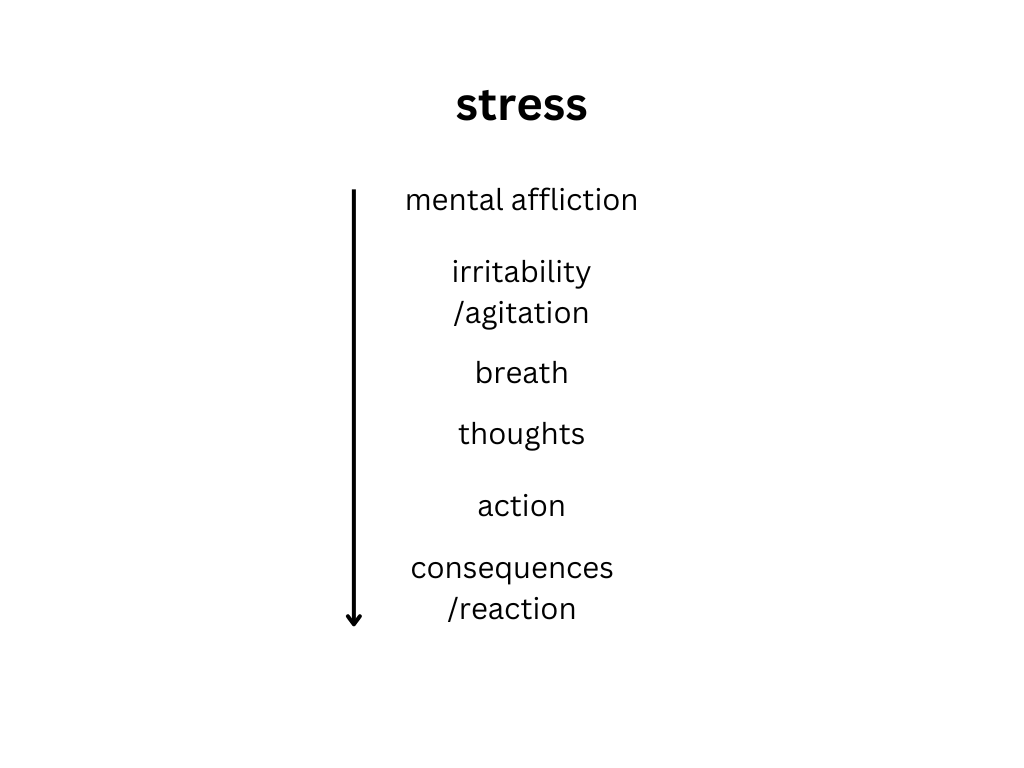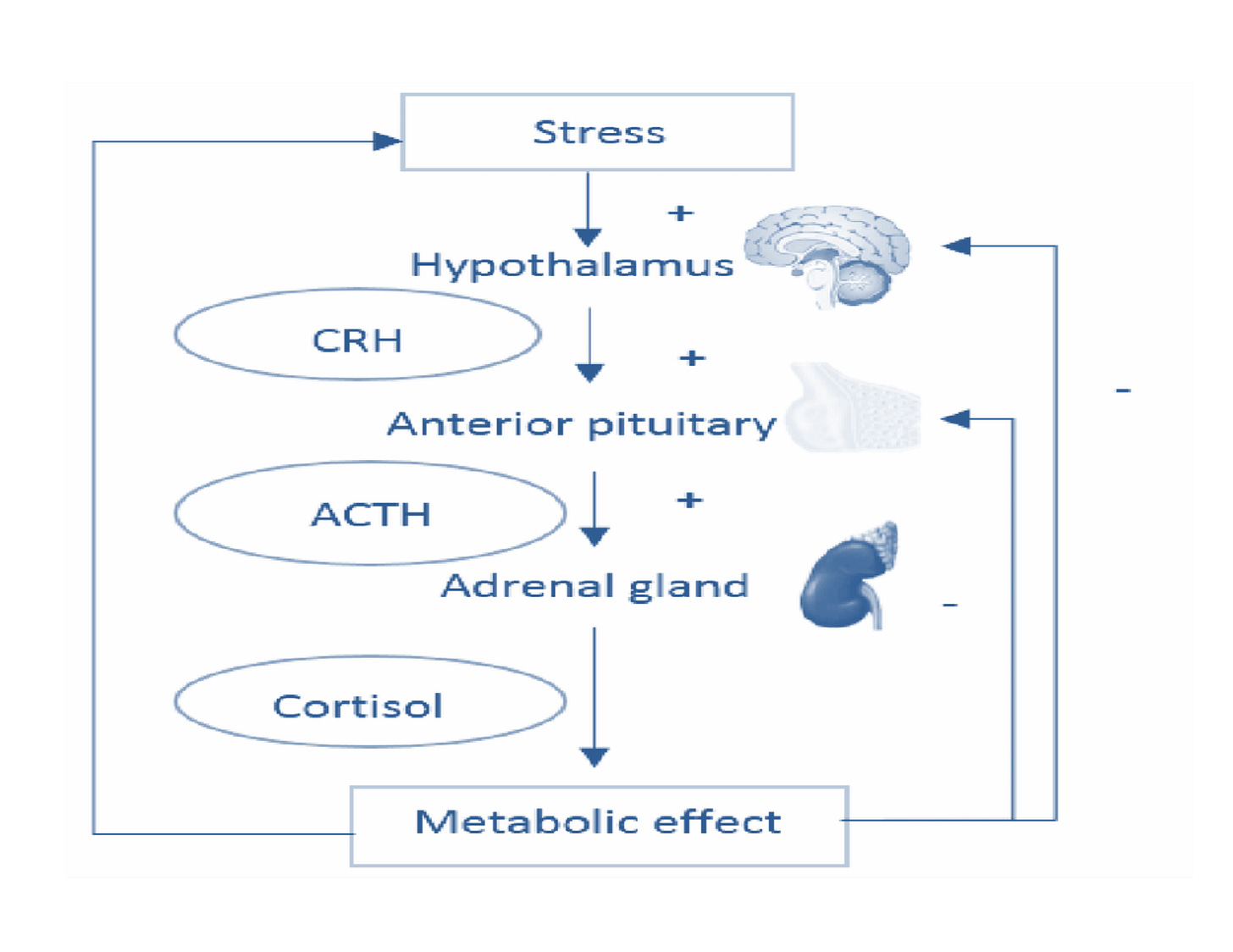Four Stages of Stress
We shall now discuss the four stages of stress. See if you identify yourself anywhere and if you do, this is a sign to start working on your stress coping mechanism.
Stress is an individual response to the change in the circumstances or threatening situation.
We use the word ‘stress’ very loosely; sometimes also as an excuse to drink or smoke which is supposedly ‘a means to relax’. That’s the state of affairs in the 21st century.
So I want to use today’s memo to take you through the four stages of stress that leads to onset of diseases and health disorders as per Laghu Yoga Vasishta; written centuries ago.
Stress is a part of life, and by now, we all have coping mechanisms (good or bad) to deal with it. These coping mechanisms may either negatively affect our body, such as smoking, drinking, over eating or content addiction, or we may have learned to use suppression/anger to combat it. Whatever the mechanism, it's best to deal with stress on a daily basis and not allow it to pile up. The dust bin must be emptied daily else it stinks the house.
Before we begin, a quick note on the ‘how and what of the diseases’ as per this ancient text.
1. All adult bodily diseases except infections (adhija vyadhi-samanya) start in the mind. The starting point is the mental afflictions, agitations or irritability. These afflictions affect the quality of our breath which in turn affect our thoughts which then affects our actions. Those actions have consequences i.e reaction. You would notice how shallow or haphazard your breadth is when someone hits your car in a traffic jam i.e during emotions of fear, anger or frustration.
2. The flow of breath affects the quality of your digestion. When stressed, we experience under-digestion (or constipation), over-digestion (metabolic fatigue) or wrong digestion (weight gain, gastro issues) etc.
3. If poor digestion, caused by stress as a precipitating factor, occurs on a recurring basis, it can lead to health disorders, depending on the individual's hereditary family history. Some suffer untraceable autoimmune diseases, some undergo cardiac challenges and some witness onset of asthma or diabetes as a lifestyle condition.
We shall now discuss the four stages of stress. See if you identify yourself anywhere and if you do, this is a sign to start working on your stress coping mechanism.
Stage 1: Psychic phase
This phase is marked by minor but persistent psychological challenges like disturbed sleep, irritability, anger, appetite loss or increased urge to eat all the time.
Did you know eating junk food or any addiction is also a stress coping mechanism? It activates the pleasure centres of your brain to combat stress and every time a new benchmark has been set so you need increased portion of whatever it is that you use to combat stress the next time it occurs. At this stage, intervention is non medical and yoga-meditation works the best.
It can also lead to complete elimination of the condition by reconditioning your brain with positive coping mechanisms that can be reinforced.
This new stress breakdown mechanism must be positive in nature without the need of any external stimuli, suppressants or substitution.
Stage 2: Psychosomatic phase
This phase arrives after constant negligence or lack of awareness of emotional or lifestyle stress. It has many manifestations; hypertension, BP, diabetes, asthma, migraine, depression, chronic anxiety to name a few.
This phase may need medical intervention depending on severity but it is completely possible to live a healthy lifestyle by managing your stress on day to day basis using new cognitive patterns of stress management as explained above.
Yoga-meditation is effective in managing the disorders at this stage which means the episodes can be eliminated, reduced or managed.
Stage 3: Somatic phase
The onset of diseases by deterioration of organs, tissues or cell bring this phase to life. At this stage, the disease has made an entry into your system fully and you will need medical intervention to get cured.
Yoga-meditation is not as effective and can only be used as a tool for rehabilitation and recovery.
Stage 4: Organic phase
The disease has made a permanent home in your body now. Pathologically, this disease has manifested fully into your system. Ulcerated stomach, COPD, chronic hypertension, ischemic heart disease etc are few examples.
The quality of your life has been deteriorated and the organ health is no longer at its optimal functional stage. You will start seeing body age at a faster rate from here on.
Stamina loss, fatigue burnout, wrinkled skin and hair loss becomes are common observations.
If you identify yourself on stage 1 or 2, it is not too late to seek intervention and yoga-meditation is the most effective to develop a new coping mechanisms i.e psych-physiological reconditioning.
From a scientific point of view, these practices focus on activating para-sympathetic system and reduce nervous excitability. That in turn brings the cortisol levels down, reduce adrenaline in the blood and the body moves into the ‘deep resting mode’.
During or after meditation, i.e., as soon as the body enters a state of rest/relaxation, the digestive, respiratory, cardiovascular, and other systems that operate best in the parasympathetic mode; get activated. This leads to a state of homeostasis, including temperature regulation, blood sugar regulation, blood pressure, etc., bringing about optimal health and well-being. The optimal metabolic rate of the body achieved due to meditation also helps in proper digestion and prevents aging.
According to the theory proposed by Streeter, the decreased parasympathetic nervous system and GABAergic activity that underlies stress-related disorders can be corrected by yoga practices resulting in improvement of disease and its symptoms.
This is why I feel meditation is one cure for all, if one can ever come to make oneself ‘sit still’ for one hour everyday.
That is what I wish for all my readers to experience so that they can enjoy a life well lived.
Get rested and enjoy the holidays. Happy 2024 :)
References
Streeter et al (2012)
Disclaimer: Not Medical Advice
The information provided in this newsletter is drawn from the ancient text "Laghu Yoga Vasistha." It is essential to note that this text is of historical and philosophical significance and does not constitute contemporary medical, scientific, or professional advice.
The teachings and insights presented in this newsletter are based on the wisdom found in the ancient text, and while they may offer valuable perspectives on well-being and spiritual practices, they should not be considered a substitute for modern medical or professional advice.
Readers are encouraged to consult with qualified professionals for personalized advice regarding their specific health, well-being, or any other concerns. The ancient text serves as a source of inspiration and guidance, but its application may vary based on individual circumstances.
The author and publisher of this newsletter do not assume responsibility for any actions or decisions made based on the information provided from the ancient text. Use the insights with discretion, and if in doubt, seek advice from relevant experts.






